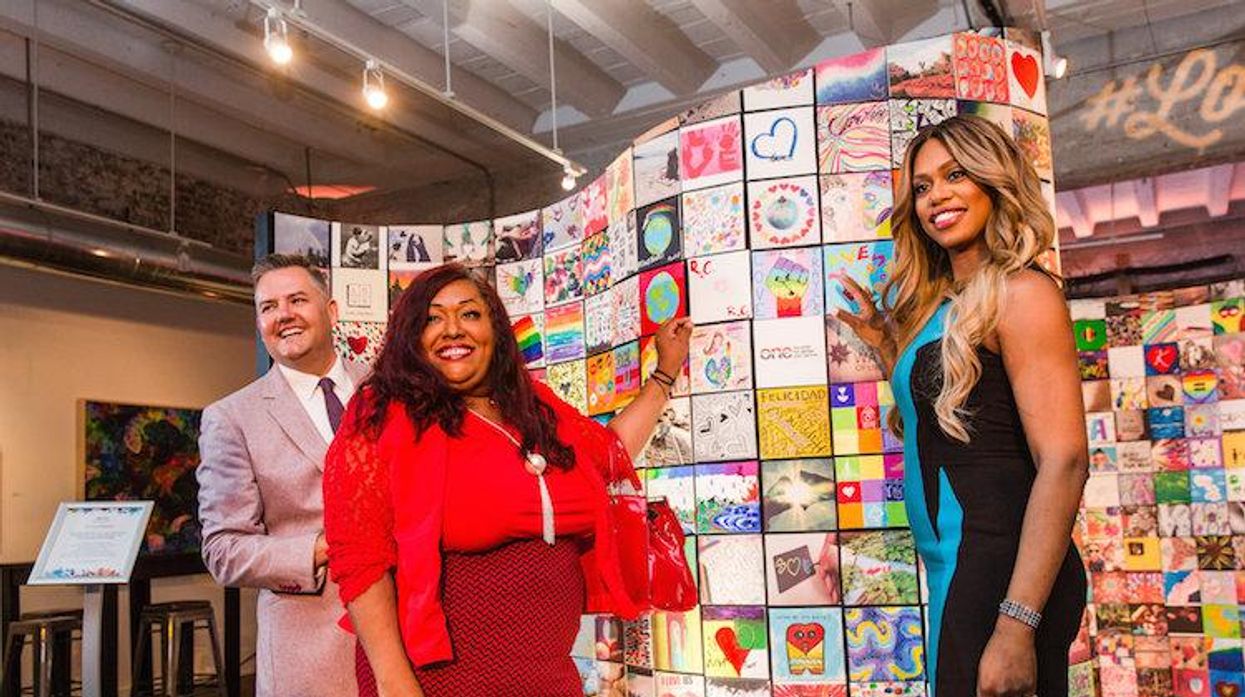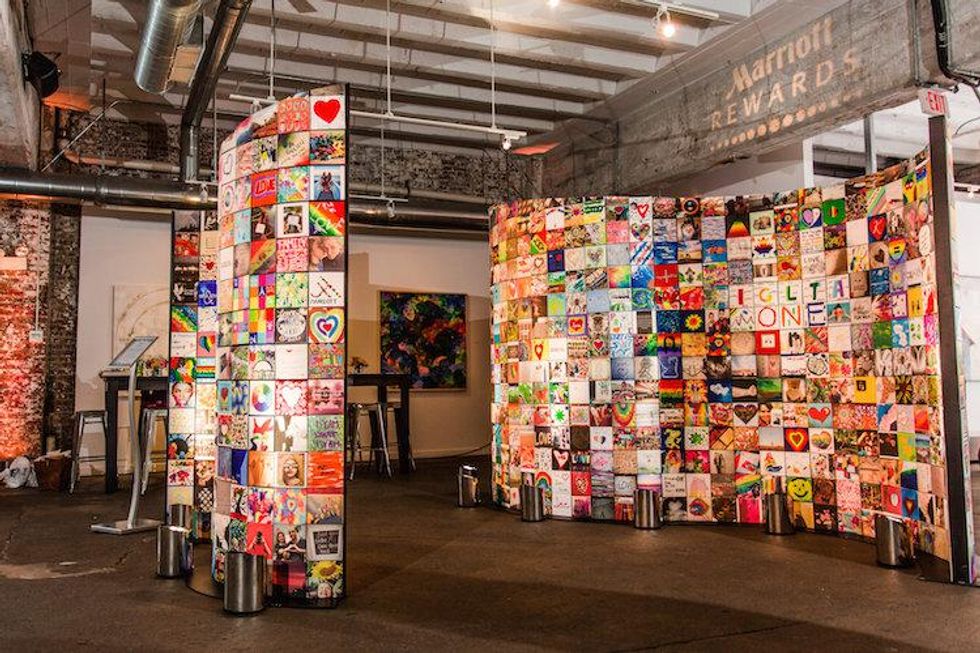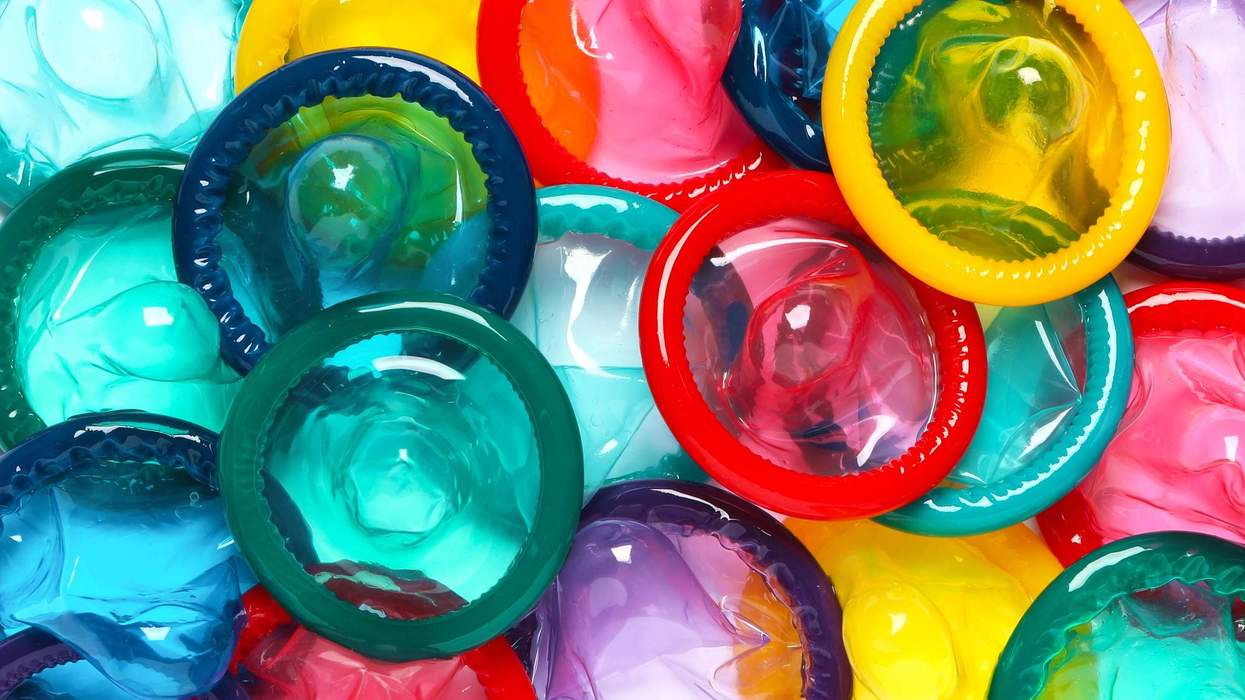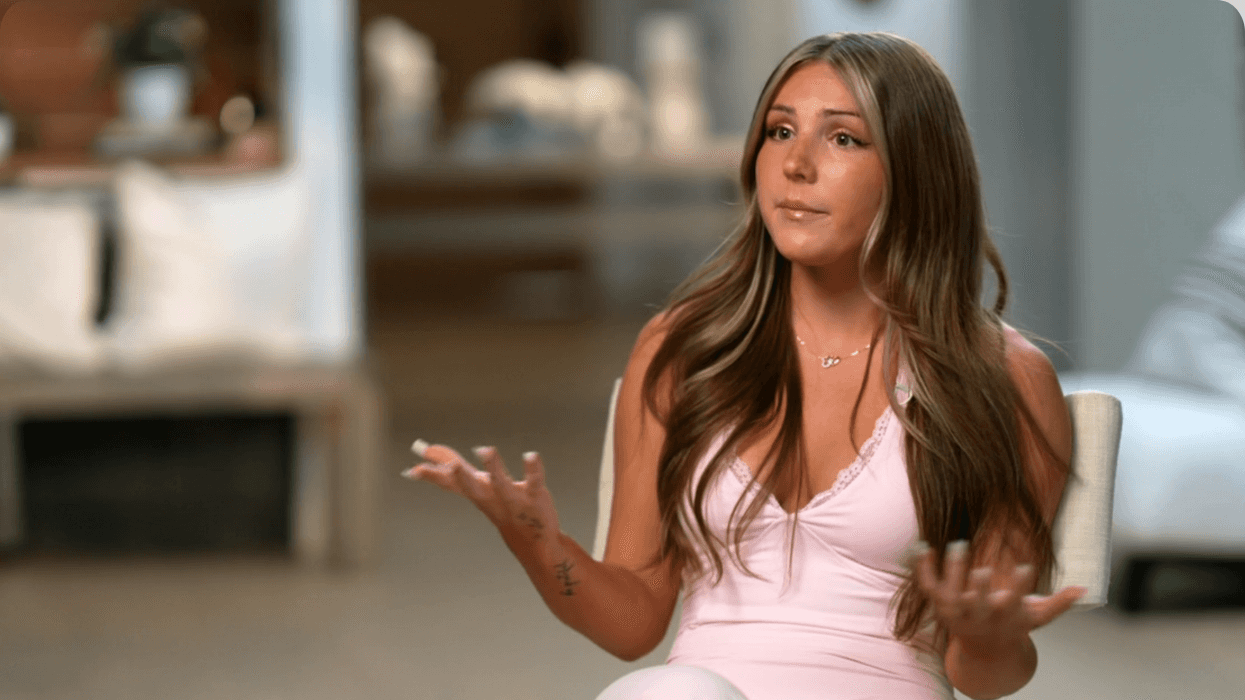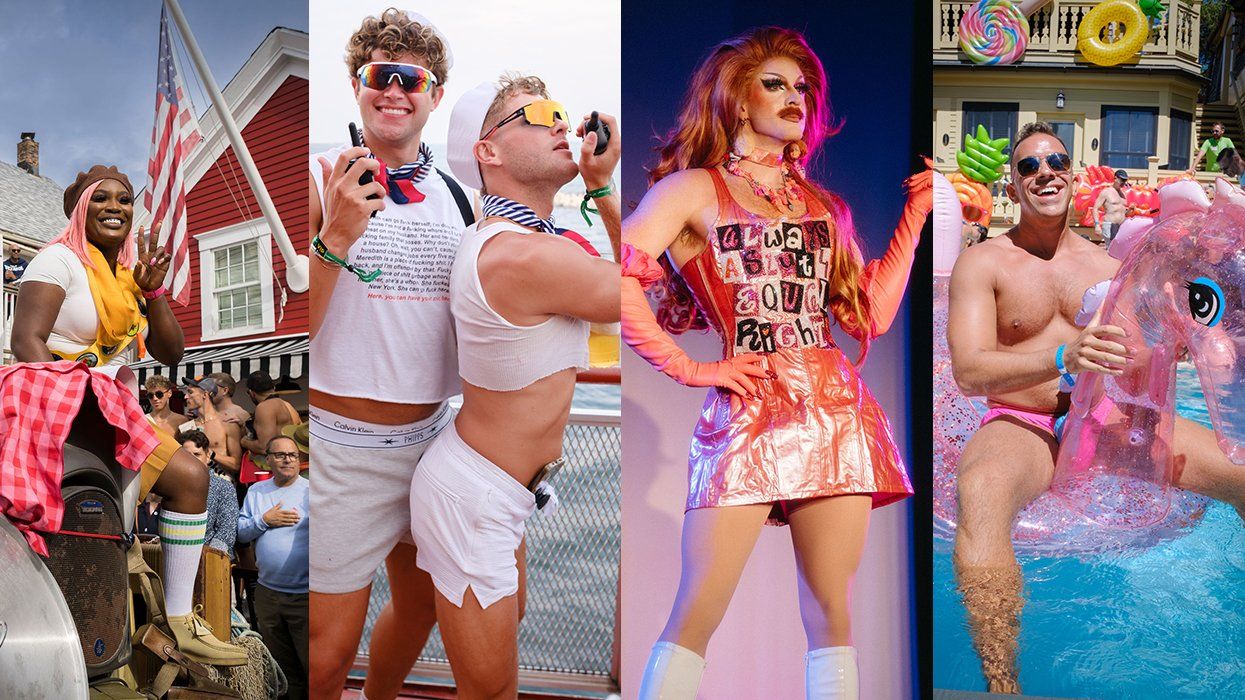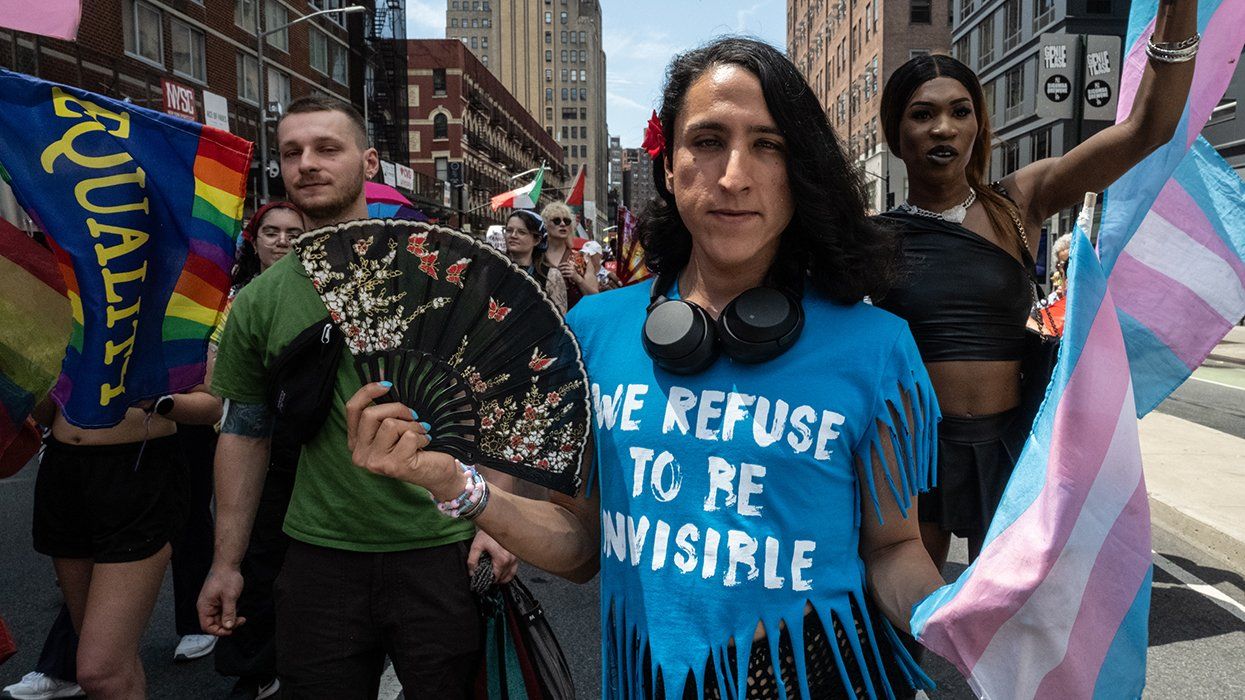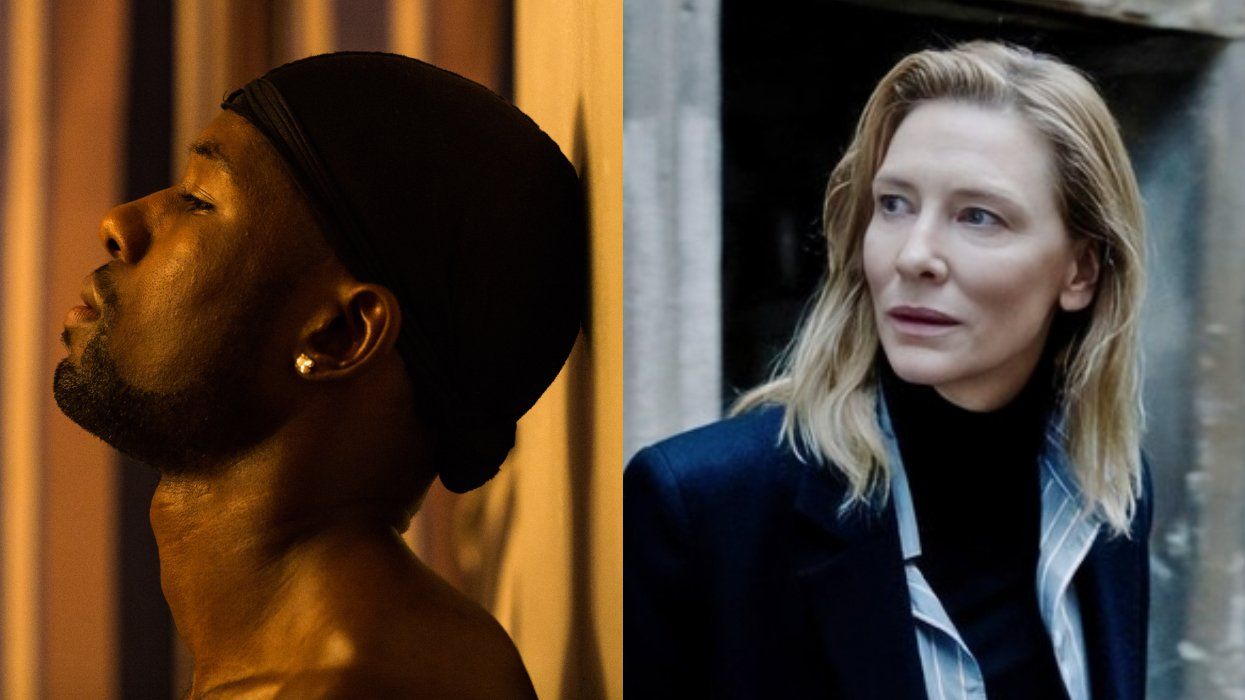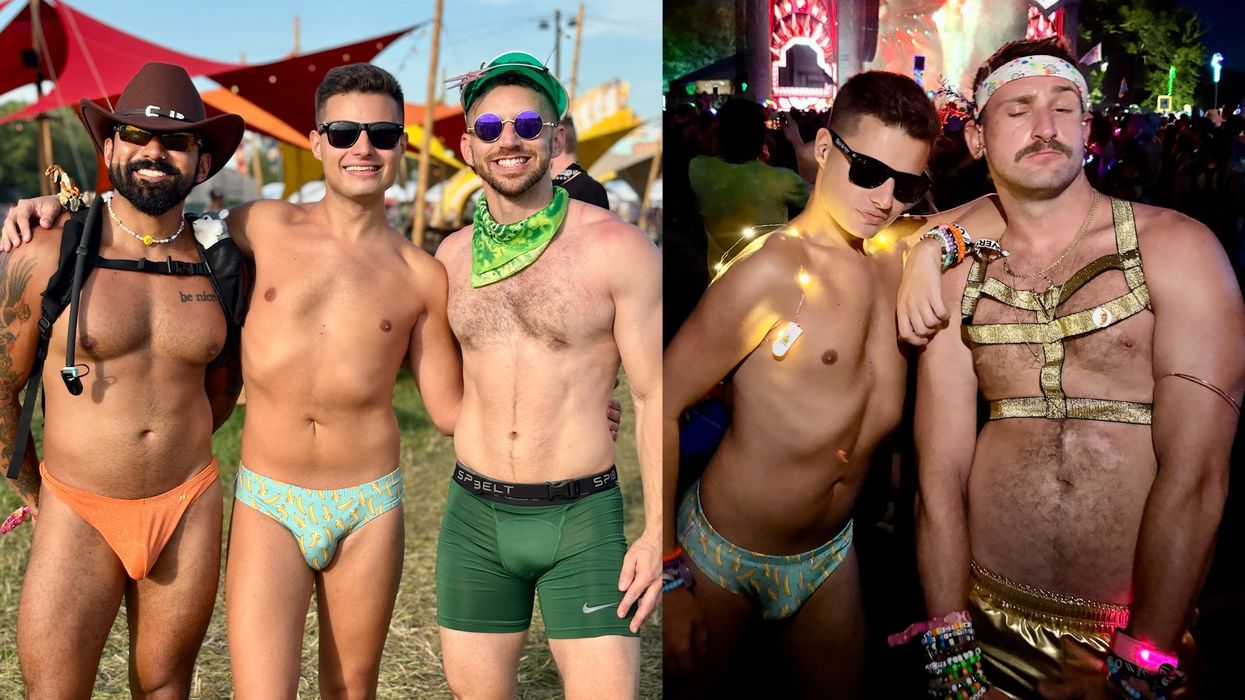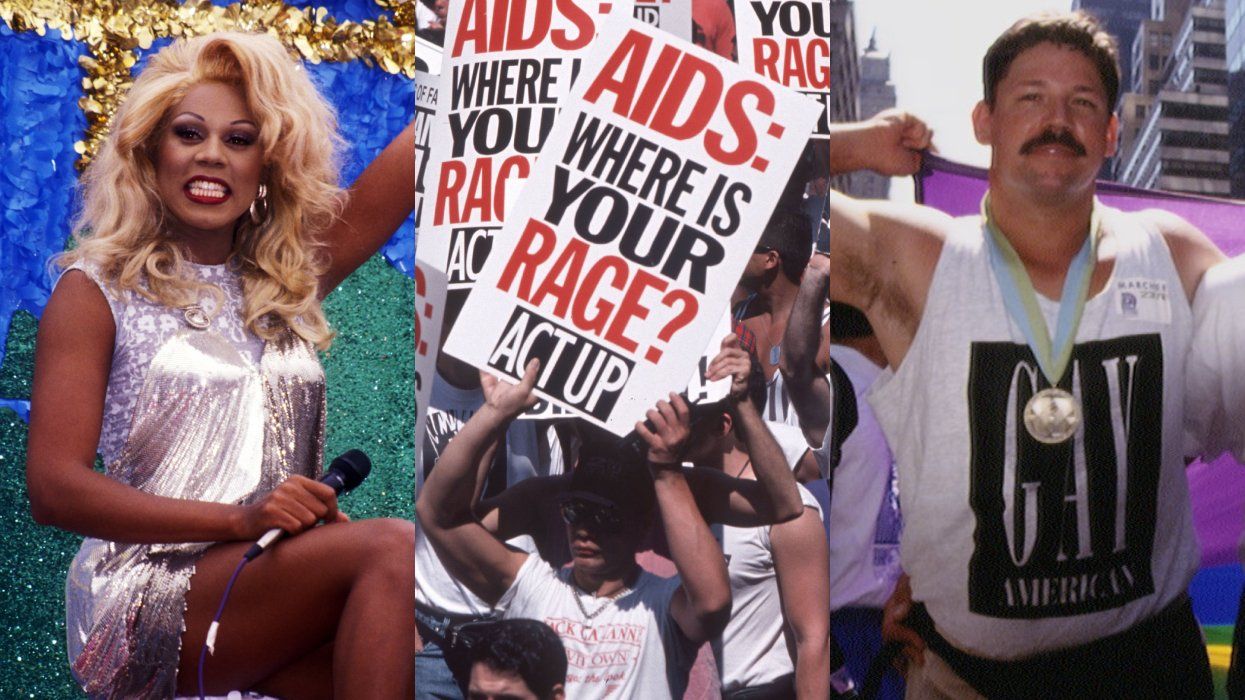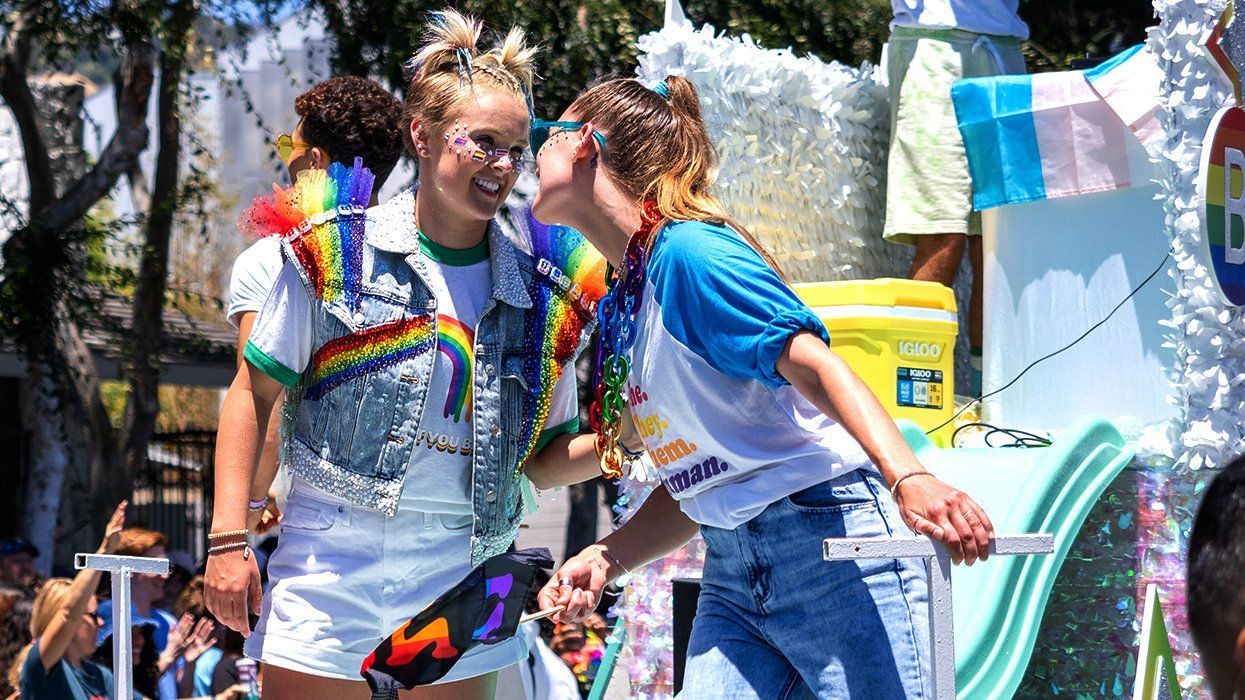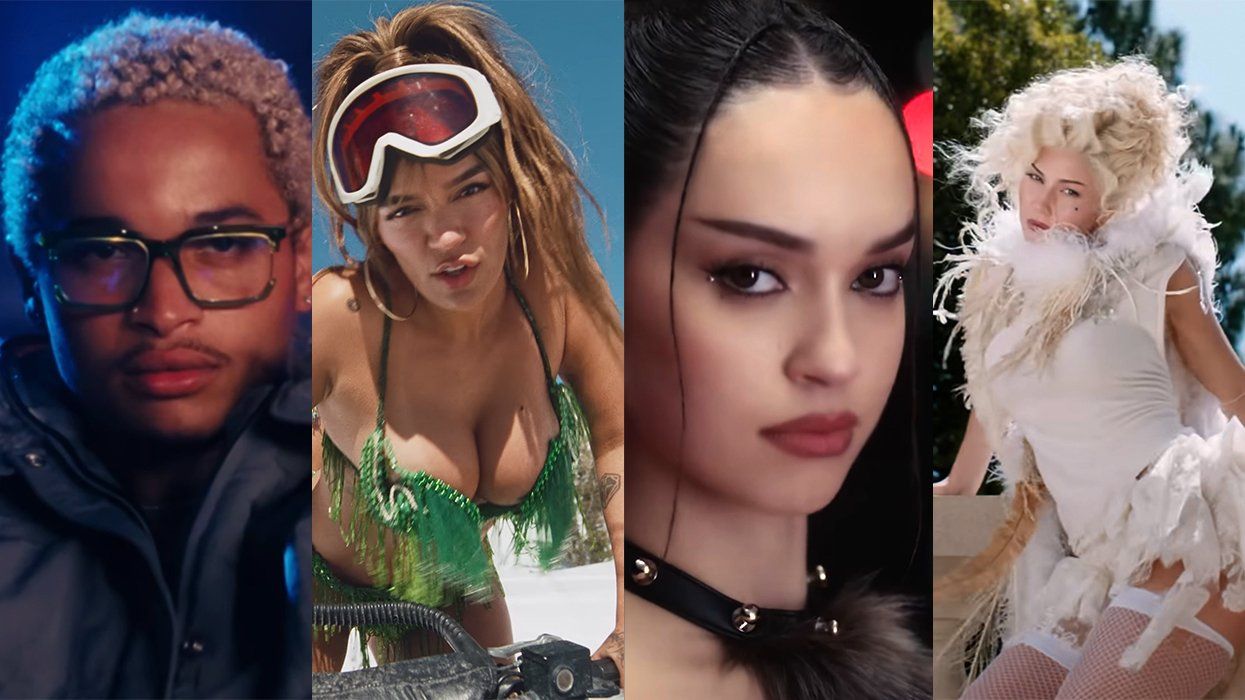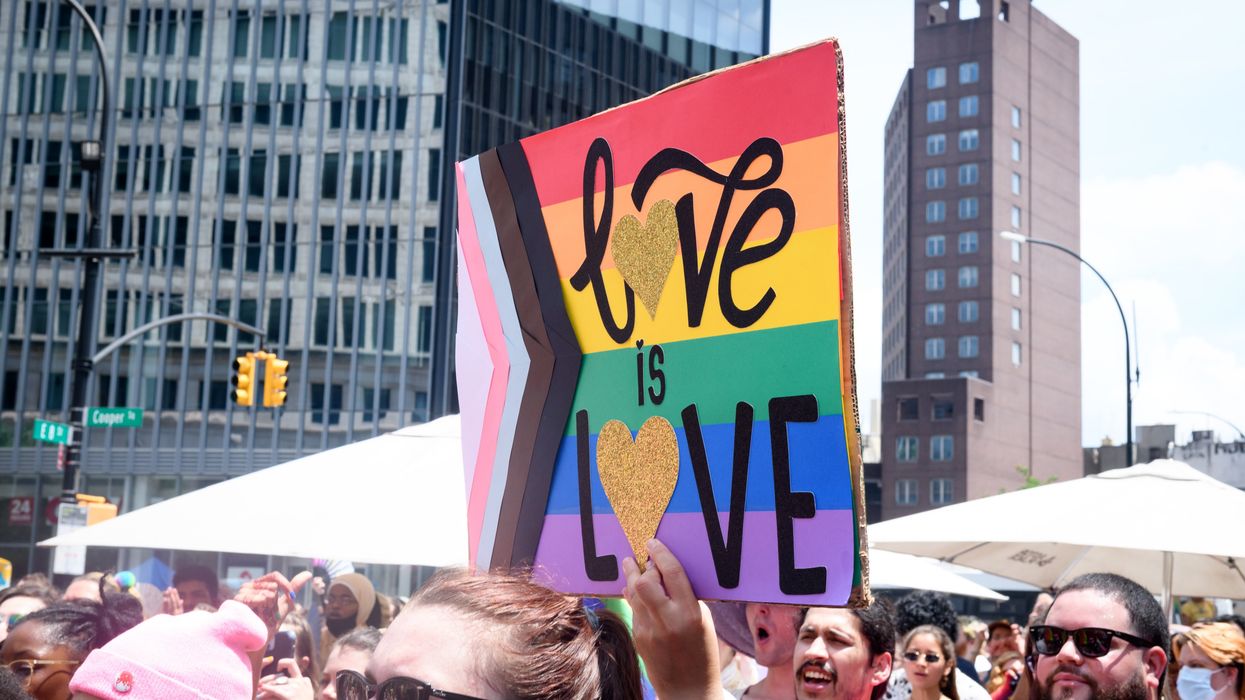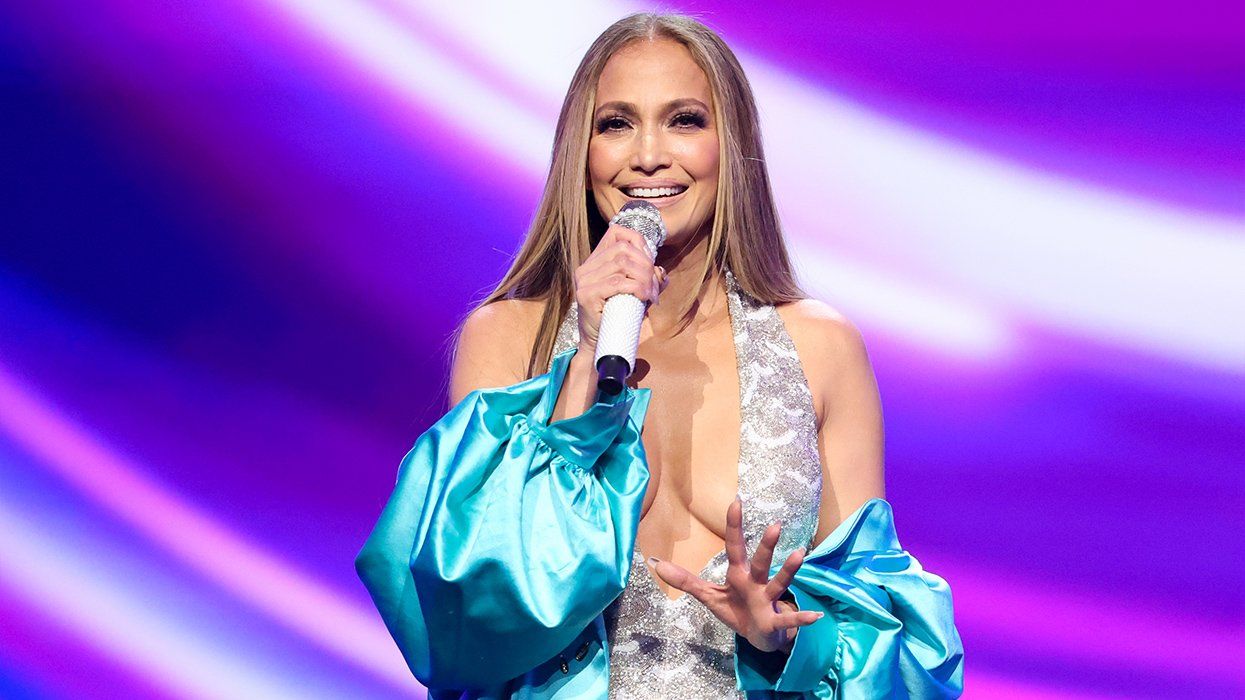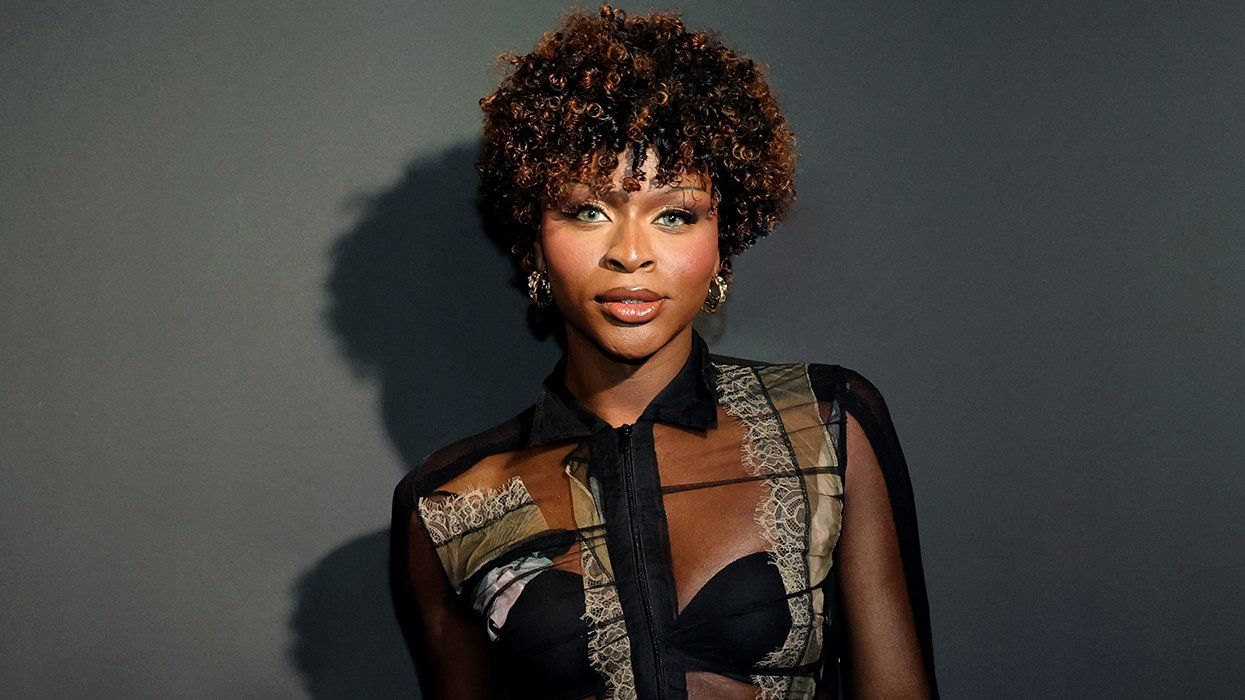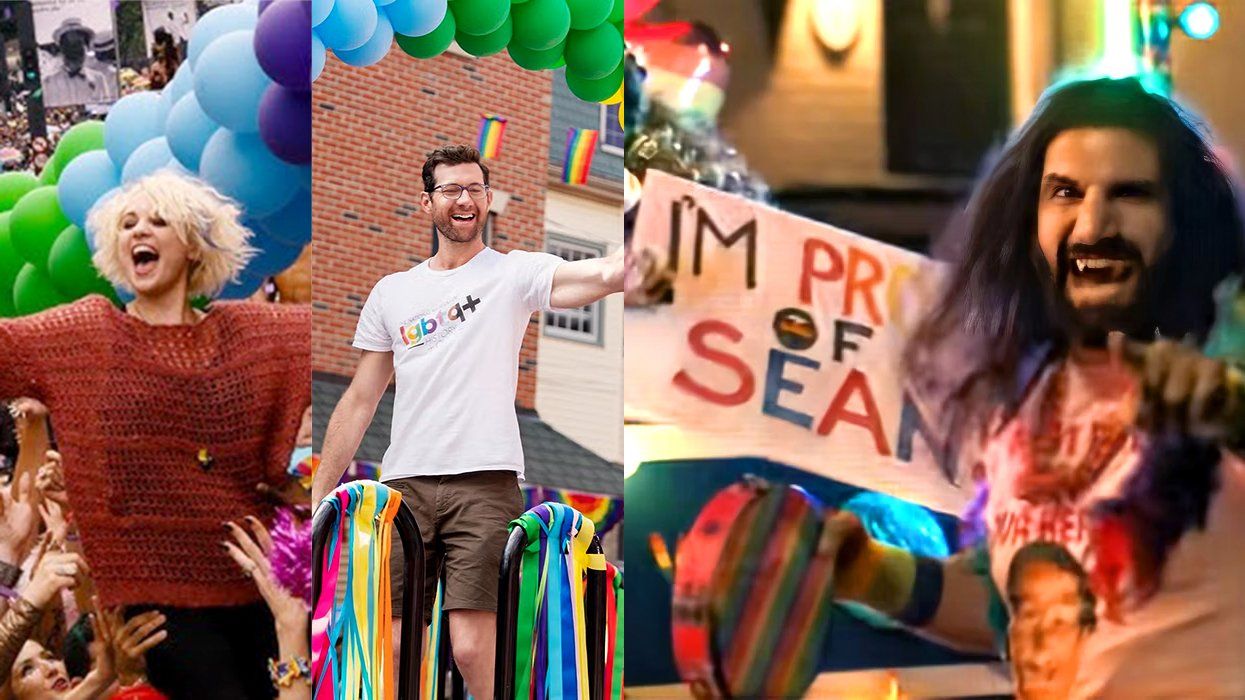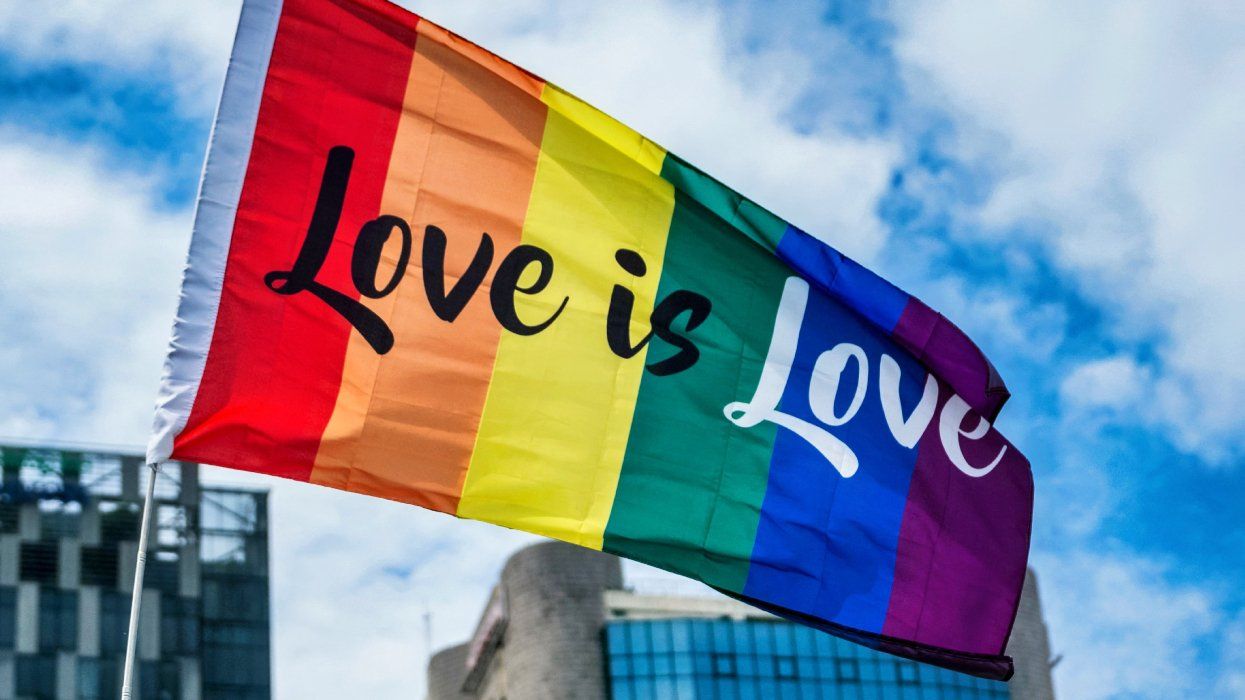Just before events unfolded in Orlando, Florida, Laverne Cox was in Washington, DC to unveil the striking #LoveTravels collaborative art installation. This selection of original artwork submitted from people across the globe is dedicated to transgender lives and leaders everywhere, and serves as a fitting and welcome testament of love and support in a time when we need it most.
The crowd-sourced installation is still on view at the LongView Gallery, and Ms. Cox joined the Marriott Rewards #LoveTravels float during the Capital Pride Parade on Saturday, June 11. We caught up with Laverne during DC Pride to discuss the campaign, as well as some other interesting tidbits....
OUT: What is the concept behind #LoveTravels?
Laverne Cox: #LoveTravels is Marriott Rewards' social movement that encourages everyone to embrace their personal passions and stories to celebrate who they are, what they love, and why they travel. This year, they have empowered people all over the world to create their visual expressions of love to support the LGBT community, specifically transgender lives and transgender leaders. They got over 3,500 submissions from nearly 100 countries. And I gotta tell you, I walked into the gallery today, and the installation is incredible.
I guess it's still a bit weird for me, even though a lot of my life is about being trans: to walk into a room and see all these expressions of love for trans people still feels revolutionary to me. Especially with all these laws now trying to criminalize trans people.
For each submission, a donation is being made to Casa Ruby, which is DC's only bilingual, multi-cultural LGBT organization that's led by a trans women of color.
What does Casa Ruby mean to you?
LC: I met Ruby in 2012 or 2013 or so, we were on a panel together at the Philly Trans-Health Conference. And I found out about the incredible work she's doing. She started the organization to care for the most vulnerable in the transgender community--trans women of color. She provides housing for them, job training services. Far too often, a lot of LGBT folks are told that we're not loved, that we don't deserve love, that we don't deserve belonging. And Casa Ruby is a place where they can get love and belonging in DC. I'm so glad that the #LoveTravels campaign is supporting Casa Ruby. And I'm happy to support both today.
I love the sentiment of love traveling--for probably 15 years now, I've been signing my emails with "stay in the love." And I initially started doing that to remind my artist friends that we started making art and being creative because we love it, and the business part of it can kick our asses, but we have to remember that we love it, we have to stay in the love. Today I was thinking "stay in the love," because love travels. And being in a place of love and trying to manifest that in my life, I feel like that effects the people around me in a positive way, and it travels.
What does Pride mean to you in particular?
LC: Pride for me is about celebrating every part of who I am. And loving myself unconditionally, even when I gain a little weight. It's about loving and accepting myself, flaws and all. Pride for me, too, is also about a legacy of those who have fought for my rights. When I think about Pride, I think about Stonewall. And Sylvia Rivera and Marsha P. Johnson and Major Griffin-Gracy, who were at the Stonewall riots in New York City in 1969 who fought the police, who were tired of being harassed and being treated like second-class citizens. Those people who have made it possible for me to live my dream. So Pride for me is also about honoring that history, that legacy of struggle for our rights. And that struggle continues.
There's been discussion that the term 'LGBT' might not really work for everyone anymore. What are your feelings on the term?
LC: I'm trans, I'm a transgender woman, so that's the T in the LGBT. The term for me is political and it's historic. I think there's something very inaccurate on a real level about lumping trans people--being transgendered, it's about gender identity--with gay and lesbian people, who, that's about sexual orientation. So I think it doesn't necessarily fit. But historically, in the mind of the oppressor, historically, in the patriarchal, homophobic, transphobic mind/imagination, whenever someone assigned male at birth would don female clothes, they would be considered less of a man. And then when the man would have sex with another man, that made him less of a man. So there was this relationship and conflation in the patriarchal heterosexist imagination that conflated two things, and because of that conflation, we ended up in this fight together. Lesbian and gay people and trans people, they were gathered at Stonewall. Stonewall, we have to remember too, was a hustler bar as well. We didn't have anything to lose.
So historically and politically, because of the mind of the oppressor, I think we're in this together. Should we challenge the mindset of the oppressor? Absolutely. "For the master's tools will never dismantle the master's house," as Audre Lorde reminds us. For me, we're all in it together anyway. LGBT people, non-LGBT people, black, white, we're all in this together. A lot of people exist in intersections of multiple identities. There are people who may identify as trans who also identify as lesbian or gay. So that's what it is for me, too. It's a really complicated intersectional piece that should always be acknowledged.
What still needs to be done in terms of trans rights and recognition?
LC: Yesterday I was here in DC and gave a press conference about the LGBT Data Inclusion Act. We actually don't count, LGBT people, in our national data surveys, our federal governmental surveys. The Census for example. We don't actually ask about gender identity or sexual orientation questions, so then we don't have an accurate count in the United States of how many LGBT exist, specifically about how many trans people exist in the country. All this policy that's being made around LGBT issues, they're making this policy with incomplete data, without the full breadth of knowledge of the experiences of LGBT people. So we need to add LGBT folks to data collection. That's actually really crucial, because hundreds of billions of dollars are allocated every single year based on the data that we get from the Census and other federal surveys. And so a lot of LGBT people and LBGT organizations are left out because they are left out of the data research. It's something really crucial and vital that I've been talking about for a long time.
Are you going to see Beyonce this summer? We know you're a huge fan!
LC: Girl, I went to Chicago the Saturday before my birthday [around Memorial Day] and I got fully in Formation, if you followed me on SnapChat you would already know. On Formation day I snapchatted like 60 different videos: "Ok, I'm getting ready to go to Formation, OK I'm in the car with my girlfriends..." Fully in formation, and I drank the lemonade and I did it in a leotard.
Did you get to meet her?
LC: Beyonce and I have never met. I'm kinda nervous, I wouldn't know how to act when I meet Beyonce, because, like, y'know, she's Beyonce. But I've got my ever-loving life! She knows who I am, we had a few moments on stage, she kinda pointed and said "Hey...!"


